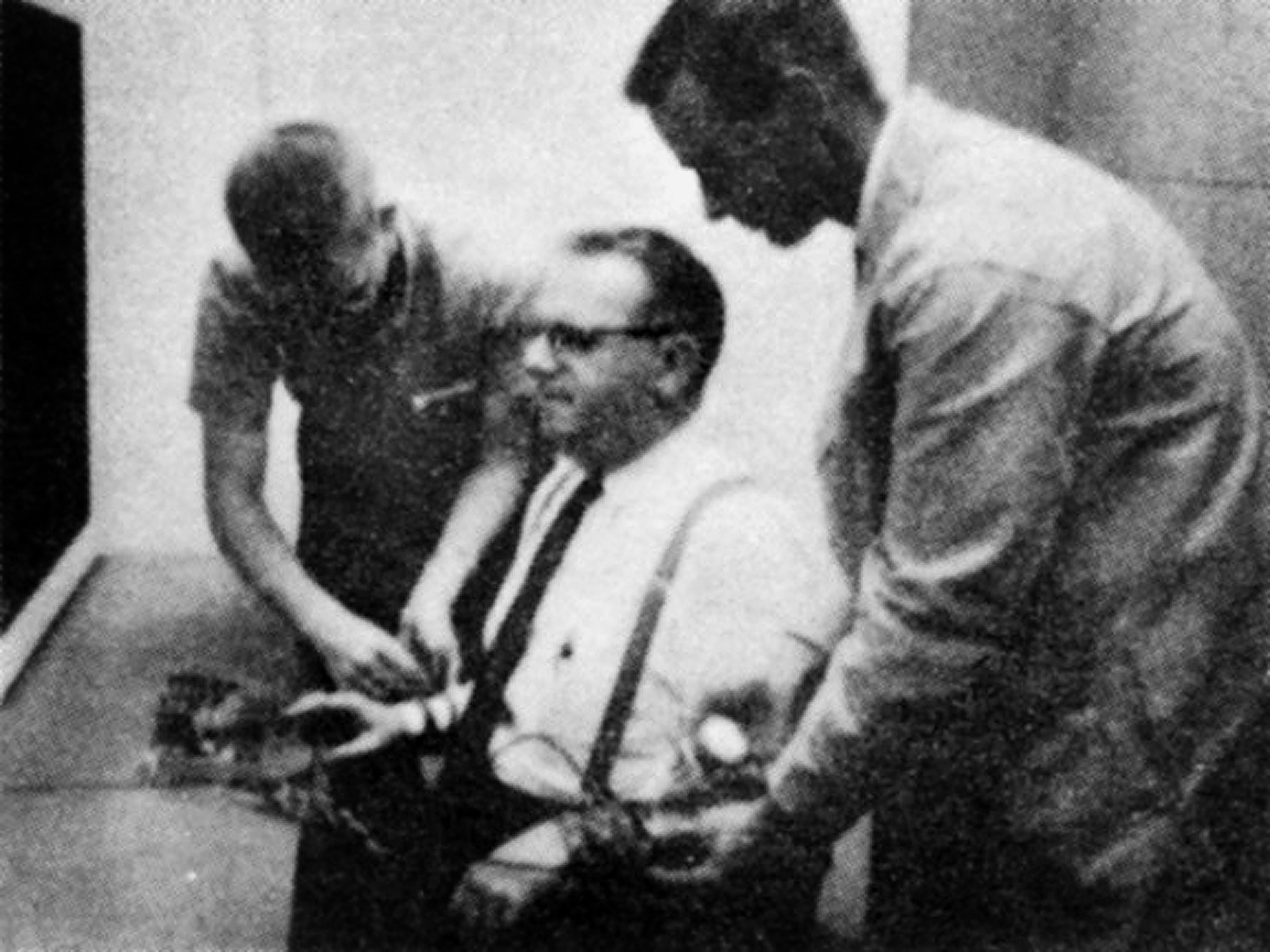Famous Milgram 'electric shocks' experiment drew wrong conclusions about evil, say psychologists
Experiment in obedience was flawed, according to new research

For more than 50 years, anyone seeking proof that humans are capable of evil need only refer to the electric shocks administered by volunteers in the famous Milgram Experiment.
Now psychologists have found that the study, which showed how ordinary people will inflict extraordinary harm upon others, if someone in authority gives the orders, may have been completely misunderstood.
Instead of a latent capacity for evil, we just want to feel good about ourselves. And it is Professor Stanley Milgram’s skill as a “dramatist” which led us to believe otherwise.
In his 1961 Yale University experiment, Milgram asked volunteers to give what they thought were electric shocks of increasing strength to people who were trying but failing to learn a task. The “students” were actors, but the volunteers believed the set up was genuine.
In the best known variant of the study, some two thirds of people continued all the way up to the maximum 450-volt level.
The experiments were devised to investigate the insistence by the German Nazi Adolf Eichmann, during his war crimes trial, that he and his accomplices in the Holocaust, were “just following orders”.
However, a paper in the British Journal of Social Psychology by researchers Professor Alex Haslam (University of Queensland), Professor Stephen Reicher (University of St Andrews), Professor Kathryn Millard (Macquarie University) and Professor Rachel McDonald (University of Kansas) argues that the meaning of the experiment has been widely misunderstood.
After trawling through the Yale archives, the team gained access to the feedback that 659 of the 800 volunteers provided at the end of the experiment, when the set-up had been revealed.
Far from being distressed by the experience, the researchers found that most volunteers said they were very happy to have participated.
Professor Haslam said: “It appears from this feedback that the main reason participants weren’t distressed is that they did not think they had done anything wrong. This was largely due to Milgram’s ability to convince them that they had made an important contribution to science.”
“This provides new insight into the psychology of oppression and gels with other evidence that perpetrators are generally motivated, not by a desire to do evil, but by a sense that what they are doing is worthy and noble.”
Professor Reicher added: “This new analysis suggests that we may have misunderstood the ethical as well as the theoretical issues raised by Milgram’s studies. We need to ask whether it is right to protect participants’ own wellbeing by leading them to think that harming the wellbeing of others can be justified as long as it is in a good cause.”
The findings will be discussed in Shock Room, a film by Millard, which explores how people make the choice to obey or disobey authority. Professor Millard said: “Milgram’s success comes down to the fact that he was a skilful dramatist as well as a psychologist. Shock Room breaks open the Milgram ‘Obedience to Authority’ paradigm and re-evaluates its conclusions.
“It tells a powerful new story about the dark side of human nature through a creative collaboration across art and science that has broad relevance for contemporary society.”
Join our commenting forum
Join thought-provoking conversations, follow other Independent readers and see their replies
Comments
Bookmark popover
Removed from bookmarks